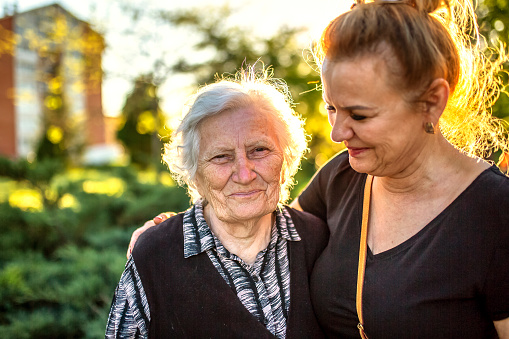“Inflammation is a complex, multistage process, and the latent variable modeling approach helped us to disentangle that and identify an inhibitory pathway that may be impacted by long-term caregiving stress.” –Dr. David L. Roth
Center on Aging and Health Director Dr. David L. Roth led a detailed analysis of latent variables of inflammation to hone in the measurement of stress on family caregivers and its effects on health among 502 U.S. study participants covering a span of 9 years. The research findings were published online this spring: “Transitions to Family Caregiving and Latent Variables of Systemic Inflammation Over Time.” Center colleagues Drs. Jeremy Walston and Karen Bandeen-Roche from Johns Hopkins joined him as well as researchers from the University of Mississippi, the University of Vermont, and the University of South Florida.
Researchers say molecules found in blood samples can provide clues to the types of inflammation a person may be experiencing. Of note, our researchers found new evidence to suggest that caregiving stress affects an inhibitory feedback loop, possibly indicating a mechanism or a vulnerability to the long-term regulation of systemic inflammation and immunity for those who provide care to a loved one with a disability over many years.
Previous studies reported minor differences using different analytic approaches to measure the consequences of stress on inflammation; as a whole, the body of existing research was often confusing. Dr. Roth’s team’s latent variable approach examined data on six specific inflammation biomarkers collected from two blood samples drawn almost a decade apart—once prior for all participants when they were not caregivers, and again for all participants about a decade later—when half of them had become caregivers. Comparing the results of these two groups, researchers reported that:
“Two latent factors, termed ‘up-regulation’ and ‘inhibitory feedback,’ were identified, and the transition to family caregiving was associated with a lower increase over time on the inhibitory feedback factor indexed by interleukin (IL)-2 and IL-10. No caregiving effect was found on the up-regulation factor indexed primarily by IL-6 and C-reactive protein.”
In other words, the latent variable methodology led the researchers to discover a new pathway by which long-term stress may have a biological impact among those who became family caregivers and sustained caregiving over a significant span of many years.
Consequently, not only do these findings illustrate the advantages of using latent variable models in research studies, but they also could lead to future research and recommendations about possible interventions to benefit caregivers’ health, alleviating them from the bodily harms of stress and mitigating consequences of chronic inflammation over time.
Dr. Roth is available to media for inquiries and further information at: (410) 955-0491.
By Anthony L. Teano, MLA
Communications Specialist

